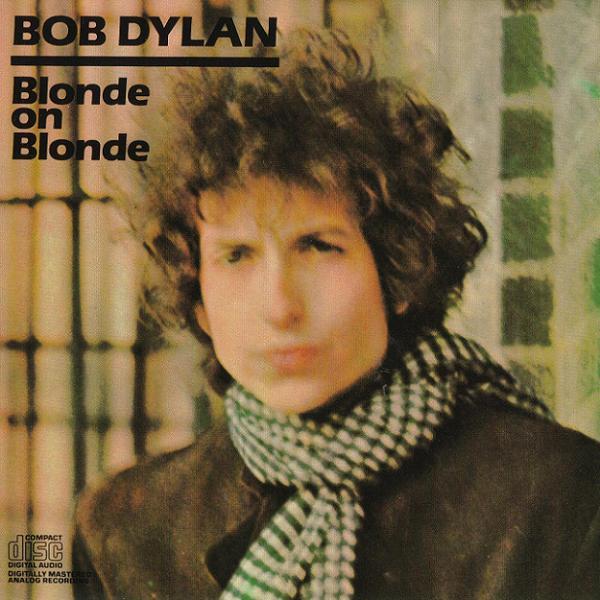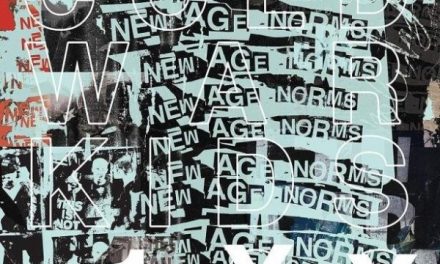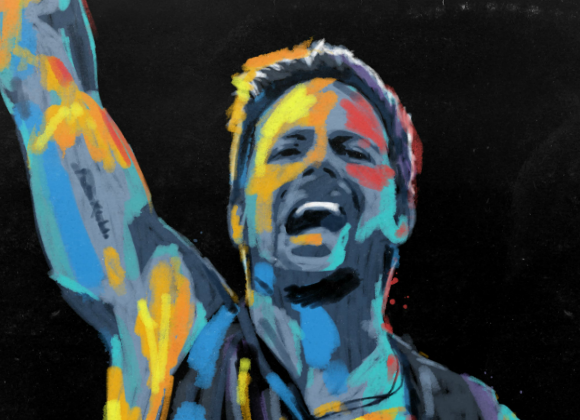Looking back on Bob Dylan’s and rock’s first double album, Blonde on Blonde, it opens to the sound of trombones & tambourines, adjacent to the sounds of Bourbon Street in New Orleans, a unique instrumentation that has never been seen before in a Dylan album, or in rock music. He found this sound because at the time he recorded this album, he was in an artistic slump. He went almost 10 months off in and out of the studio without ever having a complete song. He realized it was the musicians that backed him, which resulted in him embarking on a journey to the “Music City” Nashville. It was there where he found that sound he was truly looking for.
“Rainy Day Women #12 & 35” opens the album with, as I said earlier, a jumpy rhythm of trombone and tambourines. In this song, you can hear laughing and yelling in the background, you can hear the musicians truly having fun and letting go. Even without Dylan’s bar-none songwriting, you can hear the happiness and the joy radiating from the song. It is an excellent opener as it tells the listener that they truly were overjoyed while creating this masterpiece.
‘Pledging My Time”, opens with the classic Dylan harmonica, but with a significantly noticeable blues influence. You can hear loud and clear the influence that Nashville had on Dylan and the way he decided to go about creating this album. He took new avenues, he tried new things, he innovated the genre of music, while still accomplishing the most compelling songwriting in history.
The third song, arguably the greatest song ever written, opens with the classic acoustic & harmonica pairing that has long been a staple of Dylan’s work by then. However, on this song, Dylan truly reaches infinity. He asks existential questions throughout the song through the guise of desire for a woman. It’s genius. Whoever’s reading this, needs to stop reading it, and listen to this song. “Visions of Johanna” has the most compelling argument for the best song ever and it’s not even close. He talks about such vivid yet nonsensical things that just muster up emotion & provoke intense thought. He goes from talking about how the visions of Johanna have taken place of his true self and that all he can think about is her, to saying ‘Inside the museums, infinity goes up on trial, Voices echo, “This is what salvation must be like after a while” ‘ in a matter of lines. On only track 3 of Dylan’s opus, he quite literally creates the greatest song I’ve ever heard and asks deeply thought-provoking questions that leave everlasting impact on you in only seven minutes and thirty seconds. He continues to ramble on with the most wonderous and impactful imagery until he says ‘my consciousness explodes’, and then the song just slowly ends. It’s pure genius and I truly feel like me trying to analyze it is doing it a disservice, so I am going to leave it at that.
The next song is also incredible, “One of Us Must Know (Sooner or Later)”, has all the makings of a great Dylan song. The impactful lyricism about love, the wonderful instrumentation, and the breathtaking imagery. He talks about how they both kept doing the wrong things when they wanted to just show love to each other. Dylan admits his faults and calls out her faults but makes the mature judgement that it happens to be just life and he tried, and she tried and sometimes love just doesn’t work. It’s a beautiful, yet heart wrenching message, and shows one of the most realistic and mature takes on love that I’ve witnessed in music.
The fifth song, “I Want You”, opens with the classic harmonica accompanied by electric guitar and piano. He sings about his desires for the object of the song and uses clever metaphor to convey the emotion of love he is feeling, along with surreal anecdotes that while, are common in Dylan’s music, are ramped up to ten and perfected in this album.
The sixth song, “Stuck Inside of Mobile with the Memphis Blues Again”, is one of those Dylan songs that tell a surreal story about feeling disillusioned where you’re at and feeling like a stranger to where you are. It has the dream-like absurdist imagery about Shakespeare and a French girl. It’s one of those songs where you really need to listen to it before you cast judgement or try to even understand what I’m saying, because this song is one of the best on the album and has one of the catchier choruses and some of the best instrumentation on this album. This song shows that the choice to go to Nashville to record this album was the best decision Dylan could have made and allowed the album of the century to flourish.
The seventh song, “Leopard-Skin Pill-Box Hat’, is one of the songs that show the influence of Nashville the most. The 12-bar blues and the ‘rock & roll’ guitar are extremely impressive and sell the entire vibe of the song, along with the guitar solo towards the middle. The instrumentation on this song with Dylan’s songwriting really sell the entire album and mesmerize me every time I listen to it.
The next song, “Just Like a Woman”, is my third favorite song on the album. While the title and the contents of the song may come off as misogynistic, and some lines are, the true meaning is that he’s taking a stab at Andy Warhol for viewing one of his lovers, Edie Sedgwick as expendable and leaving her in the dust when he got bored at her. He gave her emotional complexity and dimension to show Warhol how wrong he was to view her as nothing but a toy. He writes about how she ‘aches like a woman but breaks like a little girl’ to show how she is a person and has her flaws as everyone else does. After taking the stabs at Warhol, he divulges into a song about how it’s over for the both of them and he doesn’t want her to act like she knew him when he was naïve, which results in him showing his flaws by blaming her instead of taking accountability for his own actions, which shows a very three-dimensional look at Dylan as a person and how he viewed relationships. It’s at this point in the album when it goes to the second album in the double album and goes from an existential and thought-provoking piece to a reflection of himself.
“Most Likely You Go Your Way (And I’ll Go Mine)” opens with the horns similar to the first song, but instead of sounding reminiscent of Bourbon Street, he starts singing with his recognizable voice about his side of a failed love about how he would doubt her throughout the love by being negative and pessimistic, which resulted in the end of their love, and instead of taking accountability, he writes scathing remarks about the lady and how she hurt him instead of recognizing his actions. He writes implicit flaws in his own music that make Dylan much more human than any other songwriter I’ve ever seen.
“Temporary Like Achilles”, for one, has an awesome title. But it also contains a guitar that floats through the entire song & complimenting the rest of the instrumentation excellently. He reflects on love and how he finds it hard to love the person in the song, using his wonderful storytelling of wonderous events like seeing ‘Achilles in your alleyway’ and uses the clever metaphor of Achilles & his one weakness to relate it to the issues where their relationship, how he wants her but she’s just so hard. The one Achilles’ heel of their relationship is that she’s hard to love, he likes everything about her but he can’t convey it because of her issues, however, these issues are also him not being confident in his ability to love and pushing the full blame onto the person in the song.
“Absolutely Sweet Marie” continues the theme of Dylan’s lack of confidence about his ability to love, talking about how ‘anybody can be just like me, but not too many can be like you’. He’s putting himself down while putting her onto a pedestal, which shows his inability to love himself and by extension the people he is trying so hard to love. It shows a side of Dylan that’s rarely seen in his music where he puts down his pride and admits deep down, he lacks confidence, yet blames the people around him instead of himself. The instrumentation on this song is exquisite as with all the rest of the songs on this album and compliment Dylan’s unique vocal performances perfectly.
“Fourth Time Around” is a melancholic ballad about Dylan and his woman’s issues with each other’s love. He divulges, in detail, about a fight he had with her, using his ability to write surreal imagery that puts you write in his shoes to convey the fight perfectly. It shows him, after realizing how he angered her deeply, wallowing in his own regret. This is one of those songs you listen to only in a specific mood, as it is gut-wrenching and divulges a side of love no one wants to experience in such detail that you relive every fight you’d ever had with someone while listening to it. The song ends with her trying to make amends, and him, instead of doing what he wished throughout the entire song, takes advantage of her and uses it as a chance to get angry at her now. It’s extremely dark but also painfully real.
“Obviously Five Believers” opens with the guitar of a 1950’s country ballad, and divulges in a reflection of his past relationships, except instead of Dylan’s nonchalant nature about his desires & his passive voice about what he wants, he’s practically begging for his desires on this song. He contrasts the rest of the album through truly admitting his feelings with lines like ‘I could make it without you, if I just did not feel so alone’. This song shows an unforeseen side of Dylan on this album and rounds out the nature of Dylan’s character journey well.
The final song, and my second favorite on the album, “Sad-Eyed Lady of the Lowlands”, is an 11-minute-long dedication to his then wife, Sara Lownds. His surreal imagery is at a peak on this song, where he talks about Arabian drums, warehouse eyes, and geranium kisses. When you listen to this song, you feel nostalgic, even if you haven’t heard it before. It’s poignant and emotional and reflects a deep understanding of the self that Dylan has mastered over his career up to this point. This song is a long form love letter and is filled with deep affection and admiration for his lover. He contemplates leaving everything, including the life he’s built up to this point, solely for this woman because he loves her so deeply. The vocal performance in this song is one of Dylan’s greatest and like all the other songs, the instrumentation is cutting, poignant, and important. It talks about sincerely specific things, but also has a feeling of universality, despite the frequently directed metaphors. In doing this, Dylan accomplishes a thing that some songwriters can only dream of by managing to capture the feelings of love, while remaining specific enough to not be cliché. This song is one of the many hallmarks of this album and shows why this album is Dylan’s opus.
Blonde on Blonde is one of the most important albums in my life & led me on a transpersonal journey the first time I listened to it. The one thing I implore the readers of this article to do is listen to this album, even if you don’t like Dylan’s voice, because listening to this album for the first time is one of the most fruitful listening experiences in all of music.
Image credits: Columbia Records






